Break fast foods: A good breakfast is the fuel for your body and keeps you energetic all over the day. Eating the right foods in the morning is very important. After long fasting overnight, the first meal we eat is very important for our overall health. It not only gives energy to maintain your metabolism and to eliminate toxins from your body.
Eating nutritious foods in the morning can boost your brain function, improve digestion, and help maintain a healthy weight.
Table of Contents
Top 10 Healthy Breakfast Foods
Here are 10 breakfast foods to make a part of your daily routine.
1. Oats: A Nutrient-Packed Superfood
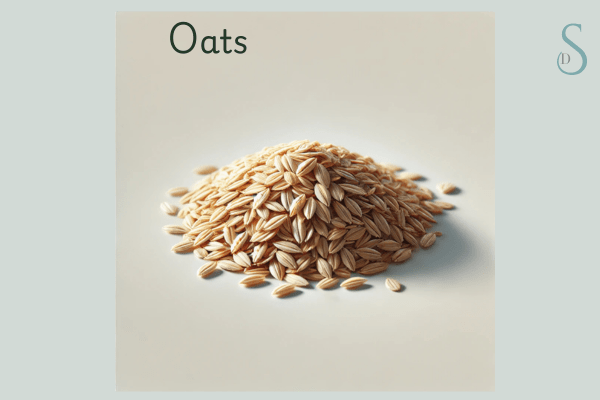
Oats are famous for their fiber content. It contains 10% of fiber, which is very high. Eating oats helps to regulate blood sugar, keep digestion smooth, and keep you feeling full for hours. Don’t eat sugary processed oats. Go for rolled oats instead.
Here are the nutrients in oats per 100g:
- Carbohydrates – 66g
- Protein – 17g
- Fat – 7g
- Fiber – 10g
- Calories – 389 kcal
How to Eat:
- Take one cup of oats and cook with milk or water.
- Mix any fruits and nuts.
- Grind and prepare a smoothie.
2. Egg: Protein-Packed Superfood
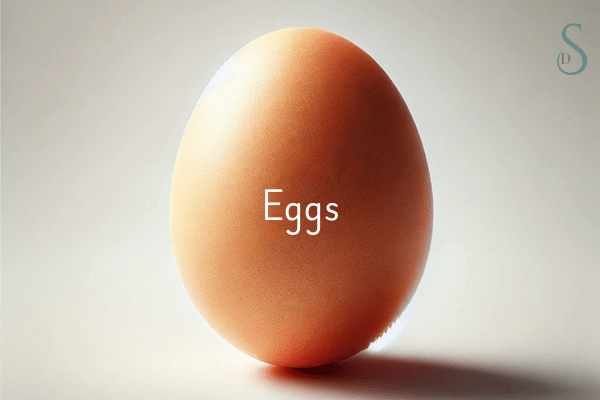
We know that eggs are packed with good quality protein and healthy fats. They support muscle health and keep you satisfied for longer. Eating this in the morning will improve your brain function.
Here are the nutrients in eggs (per 100g):
- Protein – 13g
- Fat – 10g
- Carbohydrates – 1.1g
- Calories – 143 kcal
- Cholesterol – 373 mg
Eggs are an excellent source of high-quality protein and healthy fats, making them a nutritious food choice.
How to Eat:
- Boiled the eggs and used pepper powder on them before eating.
- Prepare an omelet by adding healthy vegetables.
3. Yogurt: Gut-Healthy Dairy
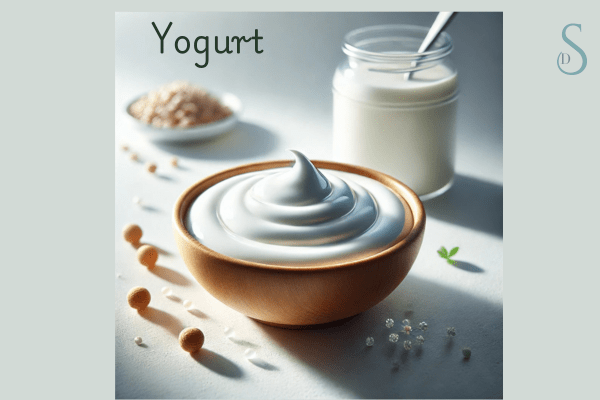
Yogurt has a good amount of protein, calcium, and good bacteria. Eating this in the morning will improve good bacteria in your stomach and support healthy digestion. This will improve your gut health.
Here are the nutrients in yogurt (per 100g):
- Protein – 3.5g
- Fat – 3.3g
- Carbohydrates – 4.7g
- Calories – 59 kcal
- Calcium – 121 mg
Yogurt is a good source of protein, probiotics, and calcium, promoting gut and bone health.
How to Eat:
- Eating plain yogurt is best.
- If you want to grind with water, add a pinch of salt and lemon juice and make a light smoothie.
4. Berries: Vitamin & Fiber-Rich Bites
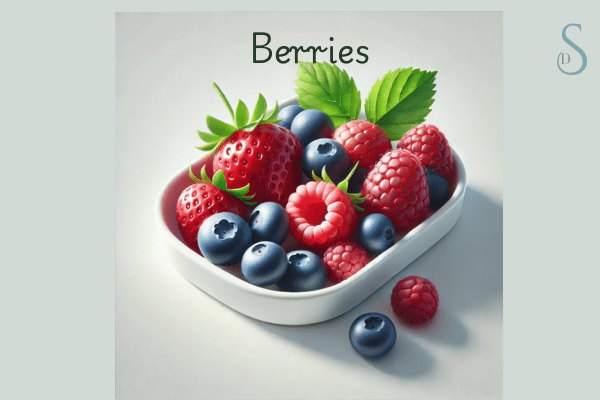
Berries like blueberries, strawberries, and raspberries are full of antioxidants, vitamins, and fiber. They help improve our heart health and fight with inflammation in our body.
Here are the nutrients in berries (average per 100g, varies by type):
- Carbohydrates – 10-15g
- Fiber – 2-7g
- Vitamin C – 20-60 mg
- Calories – 30-60 kcal
- Antioxidants – High (varies by type)
How to Eat:
- Add to yogurt, oatmeal, or cereal.
- Blend into smoothies or eat as a snack.
5. Nuts and Seeds: Healthy Fat & Protein Source
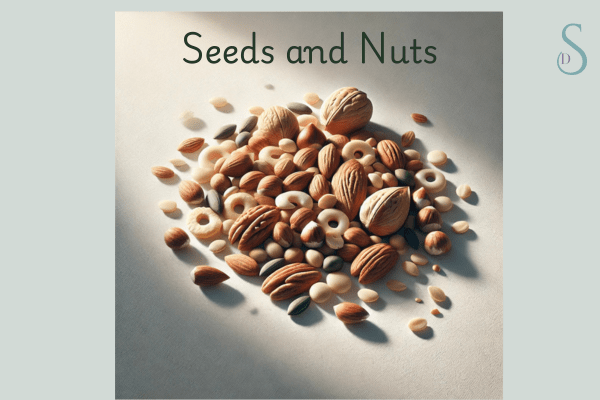
Nuts and seeds are very small in size. But they are a powerhouse of all nutrients. Almonds, walnuts, flaxseeds, and chia seeds have healthy fats, protein, and fiber. They help with mainly brain function, heart health, and energy levels.
Here are the nutrients in nuts and seeds (average per 100g, varies by type):
- Healthy Fats – 40-60g
- Protein – 10-25g
- Fiber – 5-15g
- Calories – 500-700 kcal
- Magnesium – 100-300 mg
How to Eat:
- Soak the nuts and seeds.
- Make a smoothie.
- Otherwise, you can eat a handful as a quick snack.
- We can make traditional healthy recipes using seeds and nuts.
6. Whole-Grain Bread
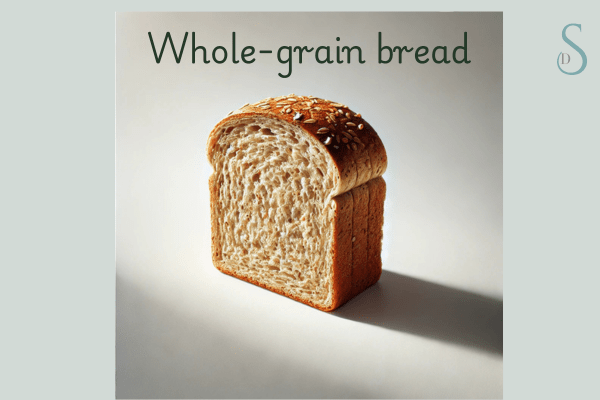
Whole-grain bread is a good option to get complete fiber and complex carbohydrates for lasting energy. The grains mainly include millets and seeds.
Here are the nutrients in whole-grain bread (per 100g):
- Carbohydrates – 43g
- Protein – 13g
- Fiber – 7g
- Fat – 3g
- Calories – 247 kcal
How to Eat:
- Bake a bread using multigrain powder.
- Prepare a sandwich using cheese and fresh vegetables.
7. Bananas: Energy-Boosting Fruit
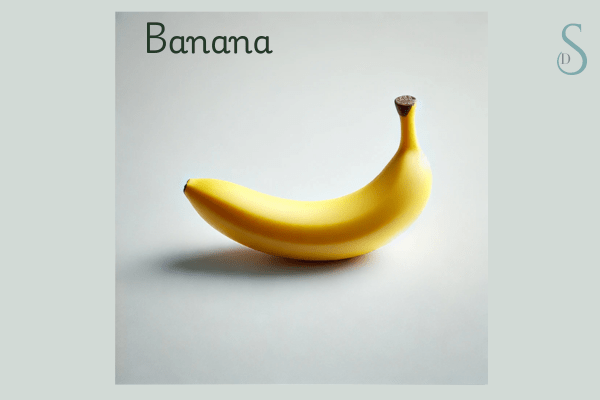
Bananas are a great source of natural energy, potassium, and fiber. They help regulate digestion and keep you feeling full.
Here are the nutrients in bananas (per 100g):
- Carbohydrates – 23g
- Fiber – 2.6g
- Sugar – 12g
- Calories – 89 kcal
- Potassium – 358 mg
How to Eat:
- Slice into oatmeal, yogurt, or cereal.
- Blend into smoothies or eat as-is.
8. Cheese: Calcium-Rich Delight
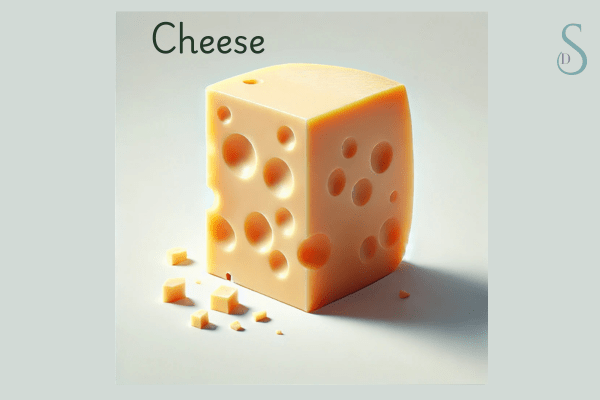
Cheese is a dairy product. It is made from cow’s milk. fresh, soft, and creamy cheese made from cow’s milk. It is white in color and soft in nature. lumpy texture. It has proteins and low fats. It is good for muscle growth and bone strength.
Here are the nutrients in cheese (per 100g, varies by type):
- Protein – 20-30g
- Fat – 25-35g
- Calcium – 500-1000 mg
- Calories – 300-400 kcal
- Sodium – 500-1000 mg
How to Eat:
- It can be mixed with fruit or nuts.
- It can be used on whole-grain toast.
9. Avocados: Nutrient-Dense Superfood

Avocados are famous for being full of heart-healthy fats, fiber, and essential nutrients. They reduce the cholesterol. So they are the heart-friendly diet.
Here are the nutrients in avocados (per 100g):
- Healthy Fats – 15g
- Carbohydrates – 9g
- Fiber – 7g
- Calories – 160 kcal
- Potassium – 485 mg
How to Eat:
- Mash on whole-grain toast with a pinch of salt and lemon.
- Add to smoothies or breakfast bowls.
10. Green Tea: Antioxidant Power Drink
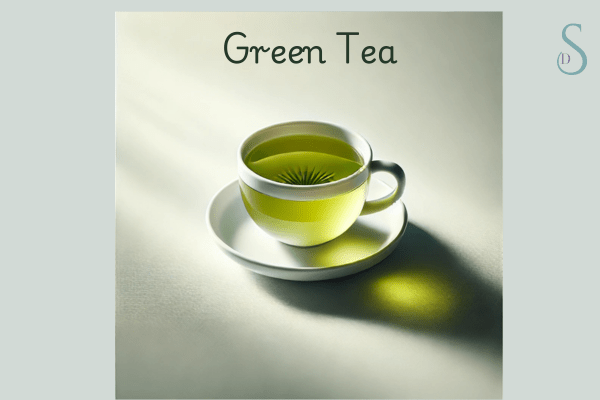
Green tea is very rich in antioxidants and helps boost our metabolism. It provides a gentle energy lift.
Here are the in green tea (per 100ml, unsweetened):
- Calories – 0-1 kcal
- Antioxidants (Catechins) – High
- Caffeine – 20-50 mg
- Amino Acid (L-Theanine) – 6-12 mg
- Potassium – 8 mg
How to Eat:
- Drink hot or iced with a little honey.
- Pair with a high-protein breakfast for balanced energy.
Final Thoughts
The first meal in the day we take should not contain any sugars. Must avoid tea and coffee containing milk and sugars. If you want, you can take it in the evening after food or in between meals. Starting your day with the right foods makes a huge difference in your health and energy levels. Try adding these top 10 breakfast foods to your routine for a nutritious and satisfying start to your day.

